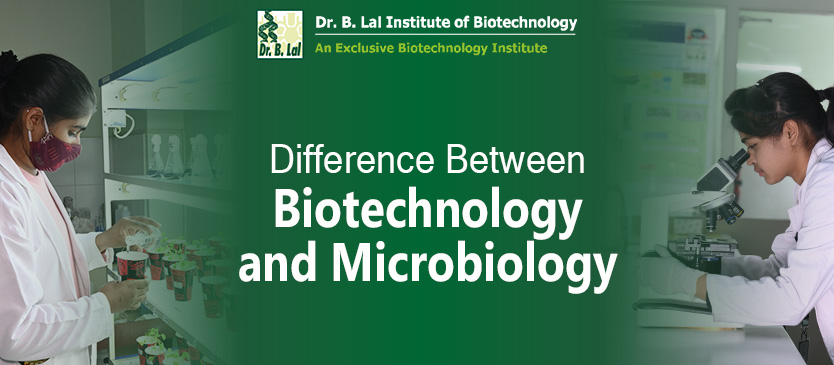
Difference between Biotechnology and Microbiology
At first look, there does not appear to be any difference between the two; nonetheless, I believe that a distinction ought to be made in accordance with the approach that is taken in dealing with microorganisms. First, we will define each phrase individually, and then we will explain how they are distinct from one another.
What exactly is meant by the term “microbiology”?
Because it is a tool to observe objects that are too tiny to be seen with the naked eye, the microscope is responsible for the study and examination of bodies that are not evident through the microscope. The simplest type of microscope is an optical microscope because it has two or more lenses in order to have an enlarged image of the object. The microbiology discipline is responsible for this study and examination.
What is a microbe?
The term “microbe” refers to minuscule living things that are made up of a single-celled cell and are also composed of various shapes and sizes due to the fact that they are connected by very small units that are formed by cells that are very similar to one another. For example, eukaryotes are those core cells that are contained within a double-layer lipid bilayer in which there are thin membranes formed by two layers of lipid molecules, and prokaryotes are those cells that do not. They conform to a particular structure, such as the nucleus, the mitochondria, and the chloroplasts.
What exactly is meant by the term “biotechnology”?
Biotechnology is based on the collection and use of components of metabolism that are based on certain microorganisms. The man makes use of his technology to create environments that are more conducive to life, investigates the fields of possibility for well-being, and while doing so, he comes into contact with the capabilities and abilities that mother nature possesses. As a result, he takes advantage of and eliminates your greatest potential for the purpose of maximizing your well-being.
Control mechanism
However, this exploitation has resulted in an undesirable influence on the land, which is why biotechnology, in addition to being a tool for production, is also a control mechanism that aims to protect the natural (forest and wildlife) life of the earth. It is possible to assert that biotechnology is not a science in and of itself; rather, it is a collection of various scientific hypotheses and fields of study that advocate for the development of a system that promotes the renewal and preservation of natural systems while also allowing for the ongoing exploitation of renewable and non-renewable resources.
Environmental protection
The development of bags, containers, and containers made out of biodegradable materials is a significant step forward in the fight to preserve the world. Biotechnology has been a useful instrument for environmental protection efforts such as global recycling. The medical industry also benefits significantly from the contributions made by biotechnology, particularly in the areas of immunization and vaccination, and many of the steps in this process are performed with this sector’s advancement of medical care in mind.
Difference
The primary distinction that can be made between microbiology and biotechnology
The difference lies in the fact that biotechnology studies and encompasses other branches of science in addition to microbiology, whereas microbiology does not study biotechnology.
In order to manufacture some product or benefit, biotechnology also employs the knowledge and techniques of other sciences, such as genetic engineering, in order to do so. Examples of such products and benefits include medicine, food, enzymes, detergents, plant improvement, and metal bioleaching.
Conclusion
The main distinction between microbiology and biotechnology has been discussed in the article. Learn more about these topics by enrolling in Dr. B. Lal Institute of Biotechnology courses. It is widely regarded as one of the most prominent educational institutions of its kind; it focuses a strong emphasis not only on the academic growth of its students but also on their personal growth.
Made it this far? That means you're curious—and we love that! Ready to test your passion for biotechnology? Click below to find out 👇🏻
Biotechnology Aptitude Test




Your email address will not be published. Required fields are marked *